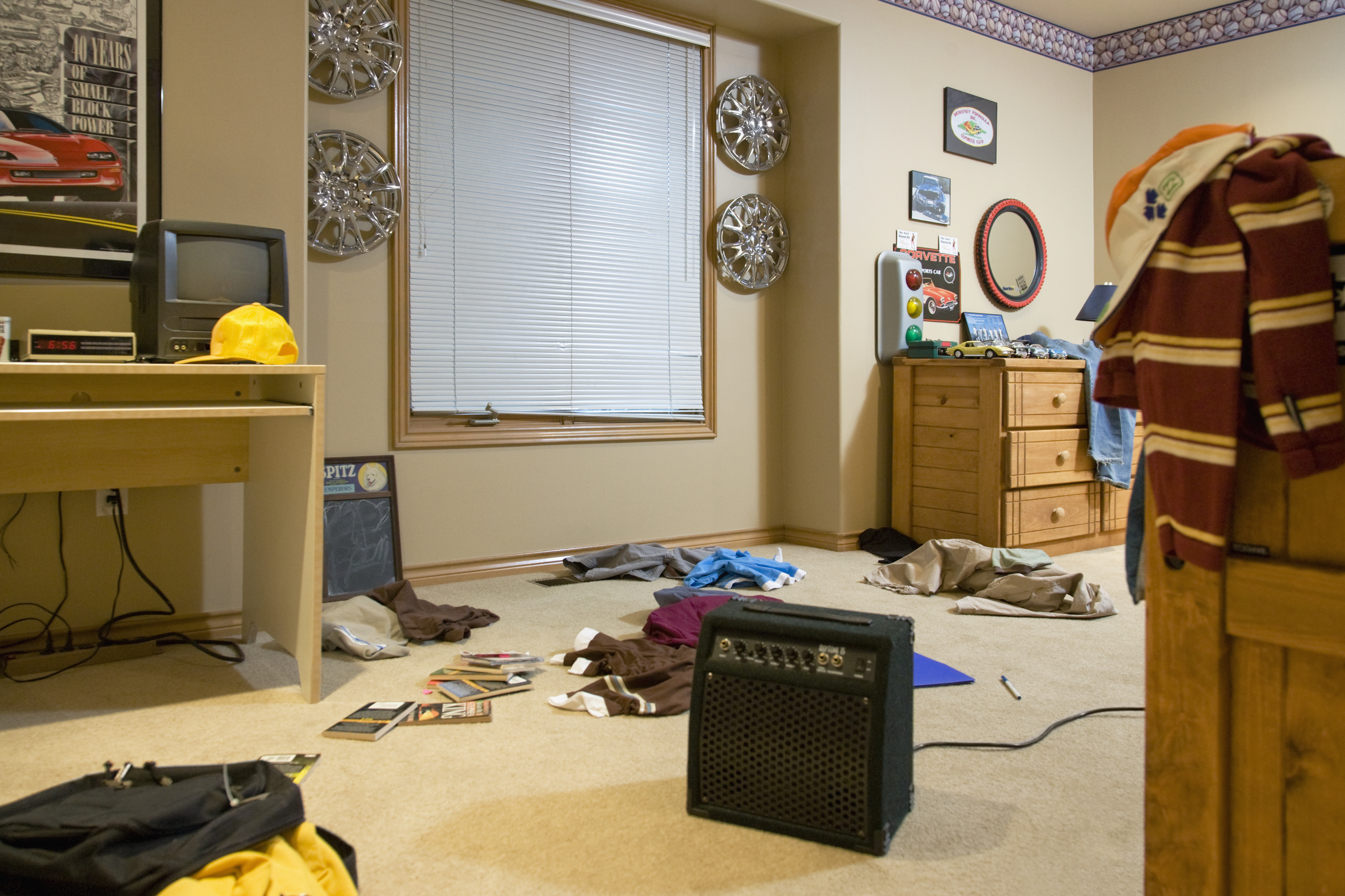Things That Drain Your Mental Energy
In the fast-paced tapestry of modern life, mental energy becomes an invaluable currency, often spent without our conscious awareness. From the moment we wake up, various subtle forces begin to chip away at our cognitive reserves, leaving us fatigued and less productive. These invisible thieves are not always obvious; they lurk in the shadows of our daily routines, quietly siphoning off our ability to concentrate, make decisions, and maintain emotional stability. This article delves into 11 such culprits, each contributing to the pervasive sense of mental exhaustion that many of us experience. By identifying these thieves, we can take proactive steps to reclaim our mental energy and enhance our overall well-being.
1. Digital Overload: The Screen Time Culprit

In an age where screens dominate our lives, digital overload is a primary thief of mental energy. Constant notifications, endless scrolling, and the pressure to stay connected can lead to cognitive fatigue. The brain is bombarded with information, much of which is irrelevant, causing mental clutter. Studies have shown that excessive screen time can impair attention span and disrupt sleep, further depleting mental reserves. To combat this, setting boundaries for device usage and taking regular digital detoxes can help restore focus and improve mental clarity.
2. Multitasking: The Myth of Efficiency

Multitasking is often hailed as a hallmark of productivity, yet it is a significant drain on mental energy. The human brain is not designed to handle multiple tasks simultaneously, and switching between tasks can lead to cognitive overload. This constant shifting requires the brain to refocus repeatedly, which is both mentally exhausting and inefficient. Research indicates that multitasking can reduce productivity by up to 40%. By prioritizing tasks and focusing on one at a time, individuals can conserve mental energy and enhance performance.
3. Decision Fatigue: The Choice Paradox

Every decision we make, no matter how trivial, consumes mental energy. Decision fatigue sets in when we are faced with too many choices throughout the day, leading to poor decision-making and mental exhaustion. This phenomenon is exacerbated by the modern world’s plethora of options, from what to eat to what to wear. Simplifying choices, such as planning meals in advance or adopting a minimalist wardrobe, can alleviate decision fatigue. Creating routines that minimize the need for constant decision-making can also preserve cognitive resources.
4. Negative Self-Talk: The Silent Saboteur

Negative self-talk is a subtle yet powerful thief of mental energy. The internal dialogue that criticizes and doubts can drain cognitive resources, leading to decreased motivation and increased stress. This mental chatter often stems from deep-seated beliefs and can perpetuate a cycle of negativity. Cognitive-behavioral techniques, such as reframing negative thoughts and practicing self-compassion, can help mitigate this drain. By fostering a positive inner dialogue, individuals can boost their mental energy and resilience.
5. Clutter: The Physical and Mental Burden

Physical clutter in our environment can translate to mental clutter, sapping our cognitive energy. A disorganized space can overwhelm the senses and create a constant source of distraction. The brain struggles to focus amidst chaos, leading to decreased productivity and increased stress. Decluttering and organizing spaces can significantly enhance mental clarity. Adopting a minimalist approach to possessions and regularly tidying up can create a more serene environment, allowing the mind to focus on more important tasks.
6. Lack of Sleep: The Restorative Thief

Sleep is essential for mental rejuvenation, yet many people sacrifice sleep in the pursuit of productivity. Lack of sleep impairs cognitive function, memory, and emotional regulation, leading to a significant drain on mental energy. Chronic sleep deprivation can also exacerbate stress and anxiety, further depleting cognitive reserves. Prioritizing sleep by establishing a consistent sleep schedule and creating a restful environment can restore mental energy and improve overall well-being. Understanding the value of quality sleep is crucial in safeguarding mental resources.
7. Poor Nutrition: The Fuel Dilemma

The brain requires proper nutrition to function optimally, and poor dietary choices can lead to mental fatigue. Consuming high-sugar, high-fat diets can cause energy spikes and crashes, affecting concentration and mood. Nutrient deficiencies, particularly in essential vitamins and minerals, can also impair cognitive function. Adopting a balanced diet rich in fruits, vegetables, lean proteins, and whole grains can provide the brain with the necessary fuel to maintain mental energy. Staying hydrated and avoiding excessive caffeine and alcohol further supports cognitive health.
8. Unresolved Emotions: The Emotional Drain

Unresolved emotions, such as anger, guilt, or sadness, can act as a persistent drain on mental energy. Avoiding or suppressing these emotions can lead to emotional exhaustion and mental fatigue. Emotional intelligence and mindfulness practices can help individuals process and manage their emotions effectively. By acknowledging and addressing these feelings, individuals can release the mental burden they impose. Seeking support from friends, family, or mental health professionals can also aid in resolving emotional conflicts and restoring mental energy.
9. Social Media Comparison: The Self-Worth Erosion

Social media platforms, while connecting us, can also be a significant source of mental energy drain through constant comparison. Seeing curated highlights of others’ lives can lead to feelings of inadequacy and low self-esteem. This comparison trap can consume mental resources as individuals strive to measure up to unrealistic standards. Limiting social media use and focusing on real-life connections can help mitigate this effect. Practicing gratitude and self-acceptance can also fortify self-worth and protect mental energy from being eroded by comparison.
10. Procrastination: The Time and Energy Thief

Procrastination is a well-known thief of time, but it also steals mental energy. The anxiety and stress associated with delaying tasks can create a significant cognitive burden. The mental gymnastics involved in avoiding tasks can be more exhausting than completing them. Breaking tasks into smaller, manageable steps and setting realistic deadlines can combat procrastination. Utilizing techniques such as the Pomodoro Technique can also enhance focus and productivity, ultimately conserving mental energy and reducing stress.
11. Toxic Relationships: The Emotional Vampire

Toxic relationships, whether personal or professional, can drain mental energy through constant conflict and negativity. These relationships often involve manipulation, criticism, or lack of support, leaving individuals emotionally depleted. Setting boundaries and prioritizing healthy relationships can protect mental reserves. Recognizing the signs of toxic interactions and taking steps to distance oneself from harmful influences can significantly enhance mental well-being. Surrounding oneself with positive, supportive individuals fosters an environment where mental energy can thrive.
Reclaiming Your Mental Energy

Understanding and addressing the subtle thieves that steal our mental energy is crucial for maintaining cognitive health and overall well-being. By identifying these culprits and implementing strategies to counteract their effects, individuals can reclaim their mental resources and enhance their quality of life. From setting boundaries with technology to nurturing positive relationships, each step towards conserving mental energy contributes to a more focused, productive, and fulfilling existence. As we become more mindful of these invisible drains, we empower ourselves to live with greater intention and vitality.